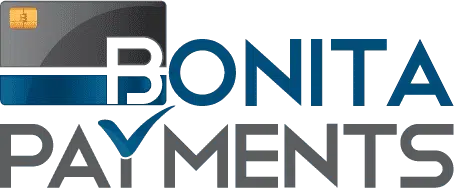Before credit cards, people had to carry a wad of bills in their pockets to pay for things. Today, real wallets are being replaced by digital wallets. More people are paying with credit and debit cards than ever before. According to last year’s data, there were about 374 million open credit card accounts in the United States. About 70% of the U.S. population has a credit card, while 34% have three or more credit cards. This tells us that credit card processing is among the most preferable, convenient, and quickest paying methods.
From a new entrepreneur’s perspective, most businesses reach a point where accepting credit card payments is necessary for selling more goods and services or building a customer base. Nearly every business relies on credit card processing, and the COVID-19 pandemic further prompted the need for it because many businesses were forced to operate online.
However, such convenience comes at a price. Many credit card processors charge an interchange rate (a small percentage of each sale) and add more fees, such as service fees, one-off fees, PCI compliance fees, monthly and annual fees. If you are a new entrepreneur and hiring a credit card payment processing partner has crossed your mind, you need to know some details and intricacies of credit card processing.
In the new entrepreneur’s guide to credit card processing, we will do our best to answer some of the most fundamental questions in order for you to understand how processing credit cards work and what you should look for in a processing provider.
What is Credit Card Processing?
With a credit card, any consumer can complete a purchase in-person, over the phone, or online. Besides the consumer and the merchant, there are other parties involved in the transaction, such as the issuing bank, acquiring bank, and card associations (e.g., MasterCard or Visa). It begins when the cardholder’s information gets sent to the processor, who communicates with the issuing bank via appropriate card networks.
The cardholder’s bank (issuing bank) either approves or denies the transaction. If approved, the approval goes back to the processor, and the deposit is settled in the merchant’s bank account. The entire process is generally convenient, fast, and safe. Even though this convenience comes at a price, it will give you peace of mind because you won’t have to worry about dealing with large amounts of cash and charging your goods or services manually.
The Different Types of Credit Card Processing
When you decide to start accepting credit card payments, what’s critical to your business success is incorporating the right processing technology. There are a few types of credit card processing, and which one will work best for you depends on the type of your business and how you run it. Once you assess your business and find out what your business needs, you will know to choose among:
- EMV Smart Terminal. This is an excellent option for businesses with brick-and-mortar stores or restaurants because it accepts most payment card transactions (while providing increased security). When looking for a payment terminal, be sure it meets the latest EMV standards so that your shoppers can pay with contactless payment methods or chip cards.
- POS System. Another common processing solution for retail locations and restaurants. POS terminals are integrated machines with a cash register, computer monitor, and an online credit card processing system. They come in various sizes and shapes and can be tailored to fit any business. When looking for a credit card processing company, make sure to choose one who can provide a POS solution with the right features for your unique business.
- Mobile POS. Mobile businesses, such as market vendors and food trucks, may look to mobile POS (mPOS). This type of card processing is payment on the go, where a tablet or smartphone operates as a registered device.
- Online shopping cart. Online shopping carts are essential for any type of eCommerce business and are powered by payment gateways. Even if you conduct most of your business operations in your brick-and-mortar store, building an online store will help you reach more consumers and even international markets.
- API. Application Programming Interface is designed to help manage payments for eCommerce websites that have specific payment solutions. API typically manages customer lists, tracks orders, and processes credit cards.
How Credit Card Processing Works
Getting to know all the important players is necessary to understand how swiping a plastic card initiates a money transfer.
- Cardholder. A person who obtains a credit or debit card from a bank that issues them.
- Issuing bank. The bank that issued a credit or debit card and approved the cardholder. The issuing bank receives the payment transaction requests and sends back a decline or approval.
- Merchant. A business that sells goods or services and accepts credit and debit card transactions as a form of payment.
- Acquiring bank. A bank that approves a merchant to accept credit card payments by evaluating their qualifications and deciding about the risk of approving them. This risk can be shared with an ISO (Independent Sales Organization) or an MSP (Merchant Service Provider). Sometimes a merchant may not know who their acquiring bank is because they worked exclusively with the MSP or ISO to obtain a merchant account. Acquiring banks are registered members of the card associations (e.g., MasterCard, Visa, Discover, and American Express).
- Card associations. Card associations are the governing body over banks, MSPs, and ISOs to provide credit card services to merchants and consumers. They decide on the standards that merchants (business owners) must meet to get the ability to accept credit and debit card transactions.
- ISO and MSP. Independent Sales Organization is a third-party company that has a relationship with a card association member, which allows it to provide merchant services to businesses. Merchant Service Provider can be a department of an acquiring bank that offers merchant processing services or a third-party company that works as a partner of an acquiring bank.
- Credit card network. The credit card network sends the card payment request/response between the issuing and acquiring bank. It’s the middle man in the transaction and functions as a part of the card associations.
- Payment gateway. A front-end software solution for merchants to accept credit and debit card transactions. It allows cardholder information to be sent for approval or denial.
Credit Card Payment Processing Company vs. Payment Gateway
These terms denote two different things but are often used interchangeably or confused. A credit card payment processing company is the facilitator of the transaction and provides the platforms and processing equipment to accept payment.
A payment gateway transmits and authorizes online payments (“card not present”) and is basically the delivery mechanism that helps an eCommerce transaction be approved or denied. In-person credit card transactions don’t require the use of a payment gateway because the merchant swipes or dips a physical card at a POS terminal.
Many credit card processing companies out there offer their own payment gateway system as part of their services. If you are partnered with a single provider, it means you will know exactly who to contact if you experience any technical issues.
Besides your card processing partner’s gateway, there are also third-party payment gateways that are quite reliable and offer excellent services (but using them might incur additional fees). You should be covered so long as your payment processor uses a reliable partner.
Credit Card Payment Processing Compliance
Payment processing compliance applies to every merchant. There are many regulations and rules associated with making/taking payments, and they make it difficult to understand what is expected of your business. Merchants must adhere to PCI (Payment Card Industry) requirements to avoid fines while accepting credit card payments. And if you want to accept debit cards, there are additional considerations through Regulation E and Electronic Funds Transfer Act.
PCI Compliance
To keep customers safe while making credit card payments, the PIC has created a set of compliance rules. Every merchant that wants to accept cards must maintain this compliance to protect customers from fraud and data breaches. There are different levels of PCI compliance responsibility, and which level you bear depends on several factors, such as:
- Whether your card processor stores credit card data for you or you store it on your servers.
- Whether sensitive credit/debit card data is physically stored on your business’ premises.
- The volume of payments you process per year.
You can rest assured knowing that you remain in compliance by choosing a Level 1 payment processor.
EFTA
An EFT (Electronic Funds Transfer) is a transaction initiated via an electronic card terminal, computer, or phone which credits/debits a consumer’s savings or checking account. EFT is governed by the Electronic Funds Transfer Act that says:
- The recipient of authorization must provide a copy to the consumer
- A preauthorized EFT is authorized in writing
- The writing must be a sign or similarly authenticated
You must follow the EFTA authorization requirements if your business accepts debit cards.
A Guide through Credit Card Processing Fees
There are different credit card processing service fees and pricing models, which merchants often find as the most difficult concept to understand. The average processing fee for each credit card transaction is 1.3%-3.4%, which is expensive when you add up the direct costs.
Fees and pricing will vary by the card processor. Let’s dive into the breakdown of common pricing models and notable service fees.
Pricing models
- Simple flat-rate subscription. In exchange for paying the direct costs of the cards you have processed and flat membership, you don’t have to worry about the interchange costs. If you want to avoid interchange fees, this pricing model is a perfect choice.
- Flat rate. With a flat-rate pricing model, you will pay for a flat-rate percentage. Transactions processed with this model will add up and eventually become expensive.
- Percentage markup. This is an unpredictable pricing model because it varies by card. Besides paying the interchange rate, you’ll be charged an additional percentage per transaction (per-transaction fees). Just like with the flat-rate model, the more transactions you process, the more markups your processing provider will charge you.
- Tiered rate. The tiered rate is the most expensive pricing model. It’s when a provider groups different credit cards in tiers and charges based on qualifications per tier. Since providers can put the most popular cards in the most expensive tier, this is the most subjective approach.
Service Fees
- Interchange fees. For each transaction you process, there is an accompanying fee – the interchange fee. Credit card companies like Amex, Discover, MasterCard, and Visa always charge a small percentage in return for the option to accept their cards. The average interchange rate is about 1.8%.
- One-off fees. Address verification fee, setup fee, and early termination fee are only some one-off fees that the processing provider will charge. If you’re not paying attention to them, they can quickly add up.
- Recurring fees. Annual fees, funding fees, statement fees, and minimum monthly fees are all considered recurring fees. They appear on your monthly bill, and you should also keep an eye on these.
PCI Compliance Fees
Mind that if you are non-PCI compliant, you’ll be charged a fee that’s separate from the provider’s costs (the PCI non-compliance fee). And if you are non-EMV compliant, you are at risk of being liable for fraudulent activity.
What are the Most Critical Processing Features for a New Entrepreneur?
Over the last ten years, we have seen lots of innovations in the field of payment processing that have made it easier for startups and small businesses to offer excellent processing features at a reasonable cost. With the right set of features, you will streamline your process and get more value from your credit and debit card transactions.
- Customer service
Before you partner up with a processing company, you should look at their customer service reviews. When unexpected issues occur or you have technical problems with your hardware/software, it’s important to have a team of experts to help you deal with the issue as efficiently and quickly as possible.
- POS features
Modern terminals are often equipped with many extra features that help you collect information on your consumers and implement different programs to retain them. Some of the most valuable point-of-sale features you should look out for are:
- Inventory management
- Employee management tools
- Analytic business reporting
- Native bookkeeping software or QuickBooks integration
- Rewards programs
With these features, you can provide a more rewarding shopping experience to your customers and help your business run more smoothly.
- Industry-specific features
Some credit card processing companies include features relevant for certain types of businesses. For example, there are processing and POS combos that come with restaurant management software that makes order tracking, seating patrons, and payment processing an easy and seamless process. Retail stores can get a more robust and powerful inventory management system that is optimized specifically for retail. Make sure you ask your payment processor whether any features are specific to your industry.
- Flexible terminal options
There are many ways to accept credit cards, and having flexible options means that you’ll be able to meet the preferences of more customers. Investing in different types of terminals can help you accept more payments, and which one you’ll choose depends on how you like to sell your product or service.
- Remote terminals. These terminals allow you to take payments on your computer just by reading their credit card info over the phone.
- In-store terminals. These terminals can be simple and allow for taps, dips, and swipes, or more integrated and featured POS machines with rewards programs.
- Online terminals. Every eCommerce website has an online terminal, so you probably know how convenient and efficient they are. They allow eCommerce businesses to make sales 24/7.
- Mobile terminals. Mobile terminals allow you to conduct a sale right there on the sales floor just by using a smartphone. Mobile terminals are easy to use and will enable you to take payments on-the-go.
Conclusion
We recommend that you put all the knowledge you have about credit card processing to good use because the sooner you start accepting credit card payments, the sooner your business can thrive. We also hope that, at this point, you gained enough understanding of how credit card processing works and what to consider while looking to hire a processing partner. Start the process by comparing processors that will provide excellent service at a reasonable rate.
Credit card payment processing is essential in the modern business environment, and many consumers expect more flexibility when it comes to how they pay for products. Start accepting credit cards, maximize your profit margin, and keep your customers happy thanks to the added convenience. Bonita Payments is here to work with your organization on setting up the right payment solution. We will help you simplify operations, launch faster, and get paid quickly. Contact us for more information today!






